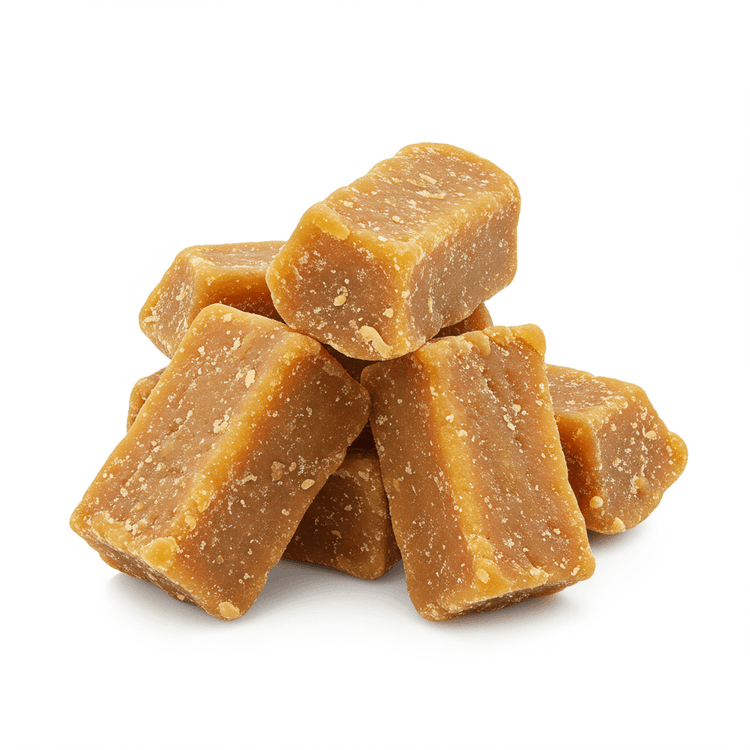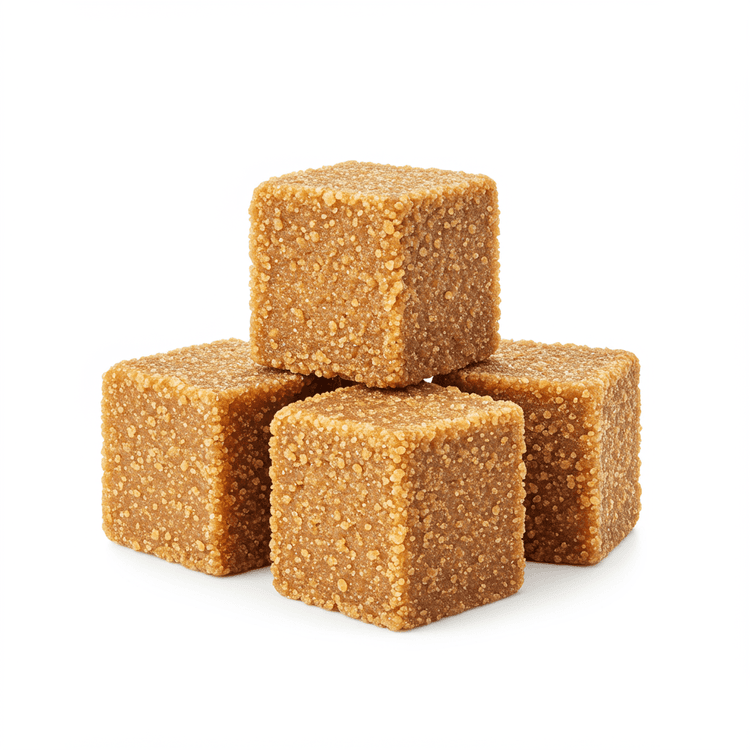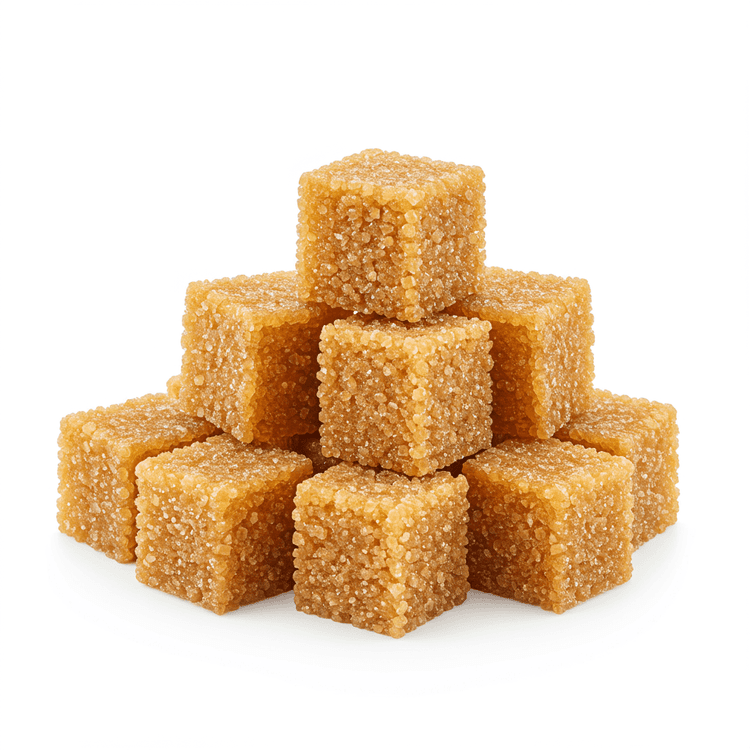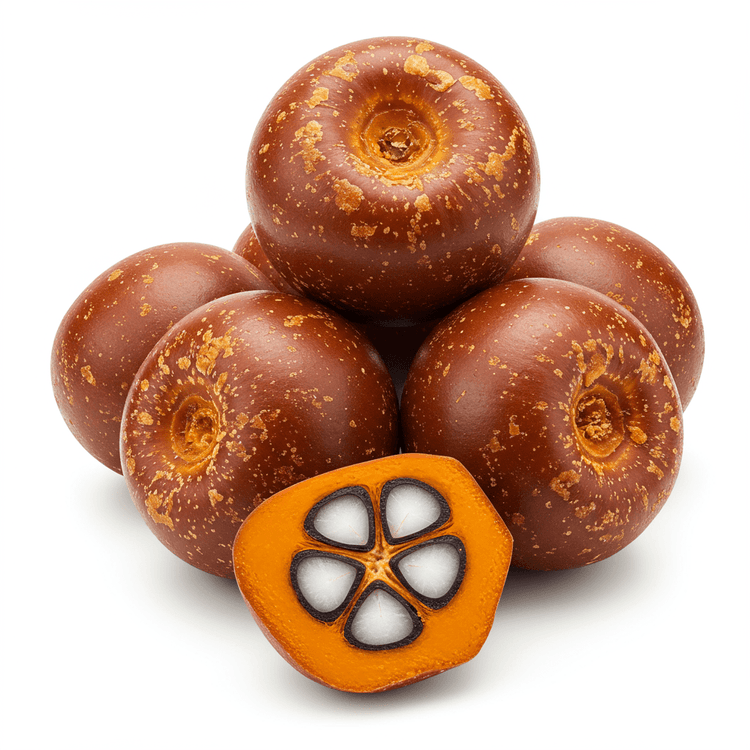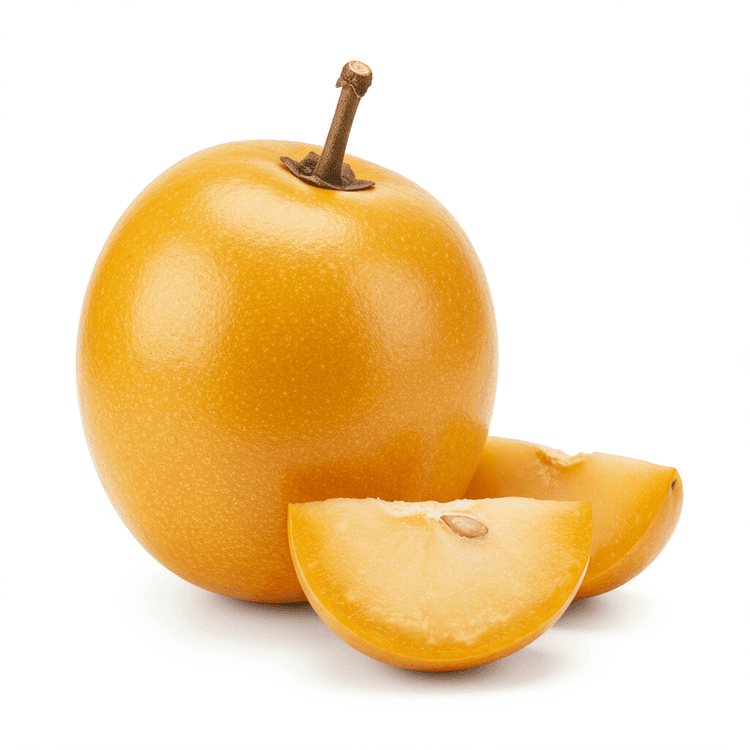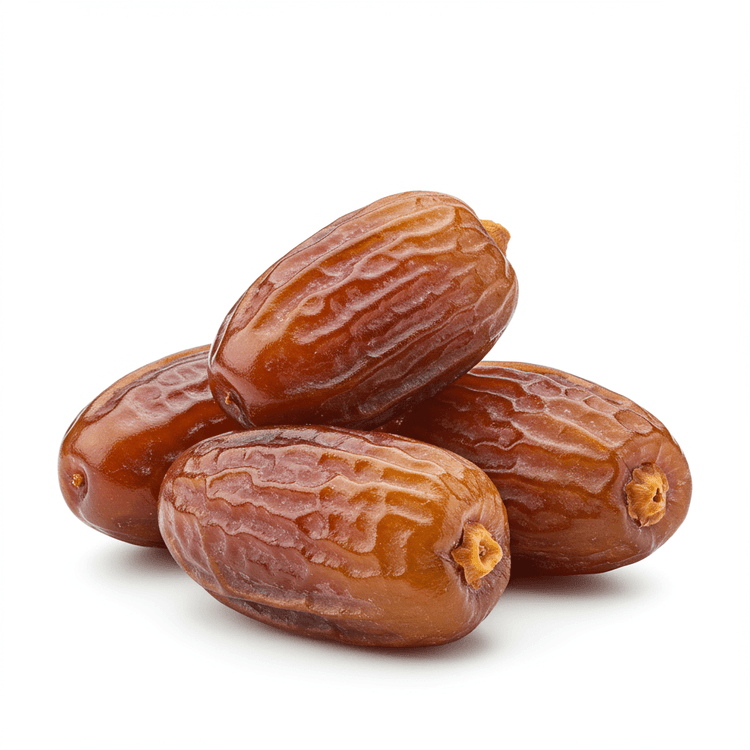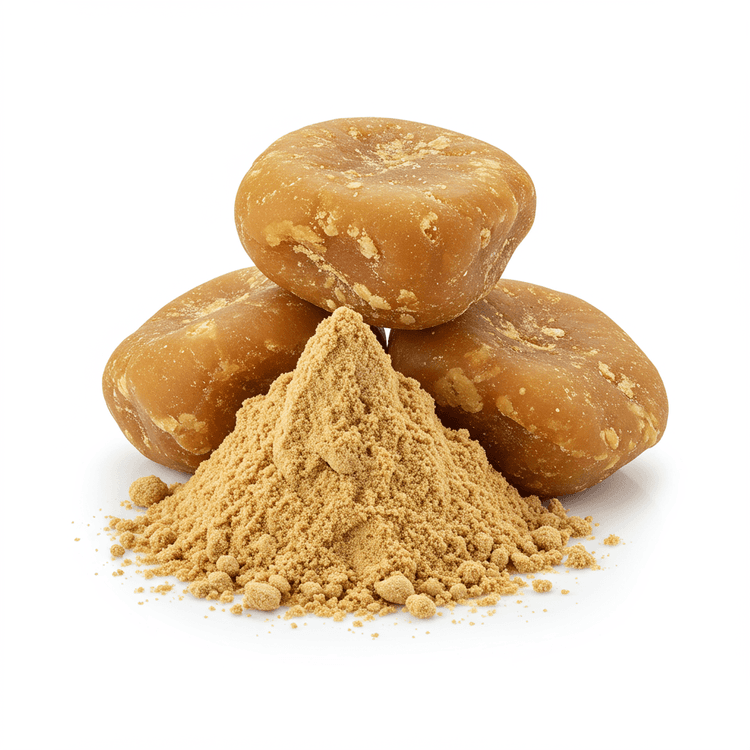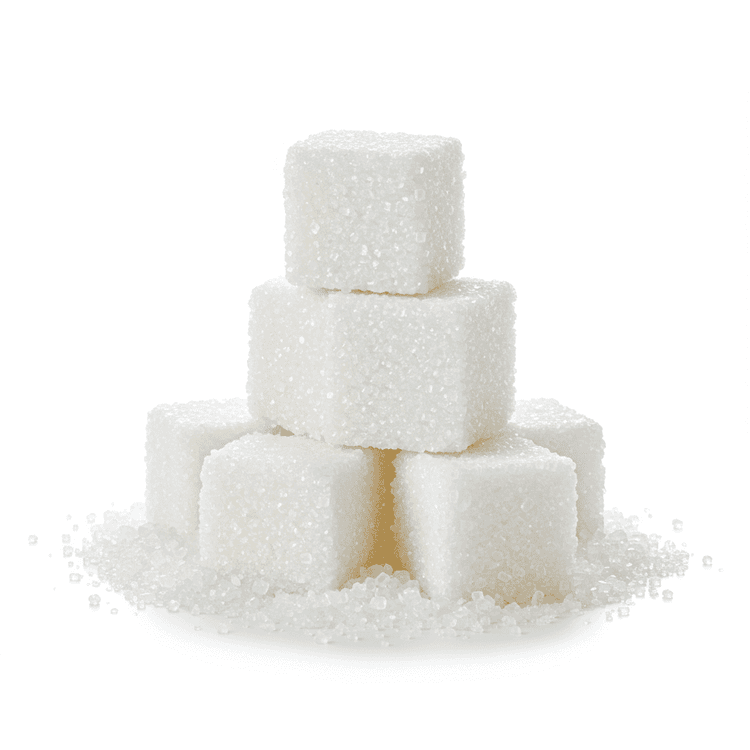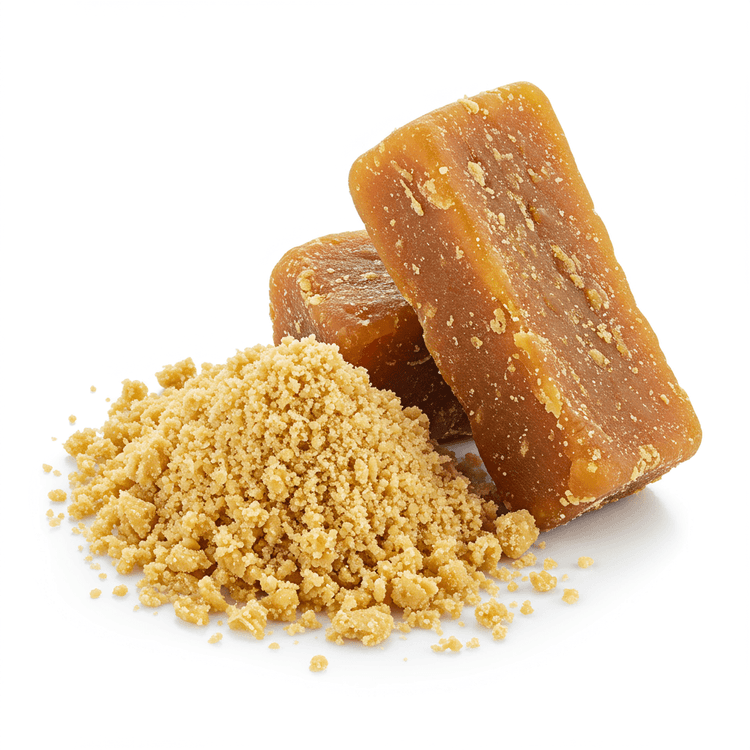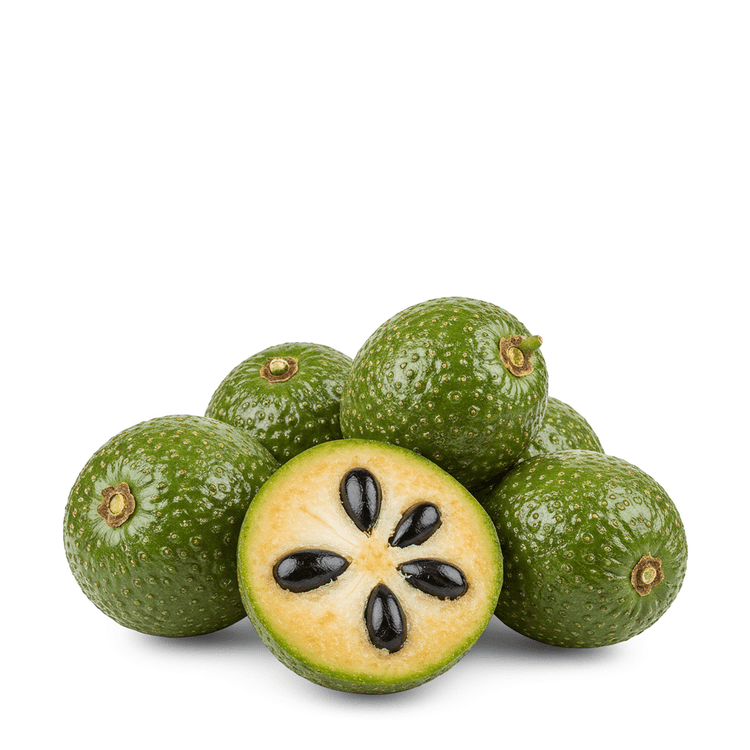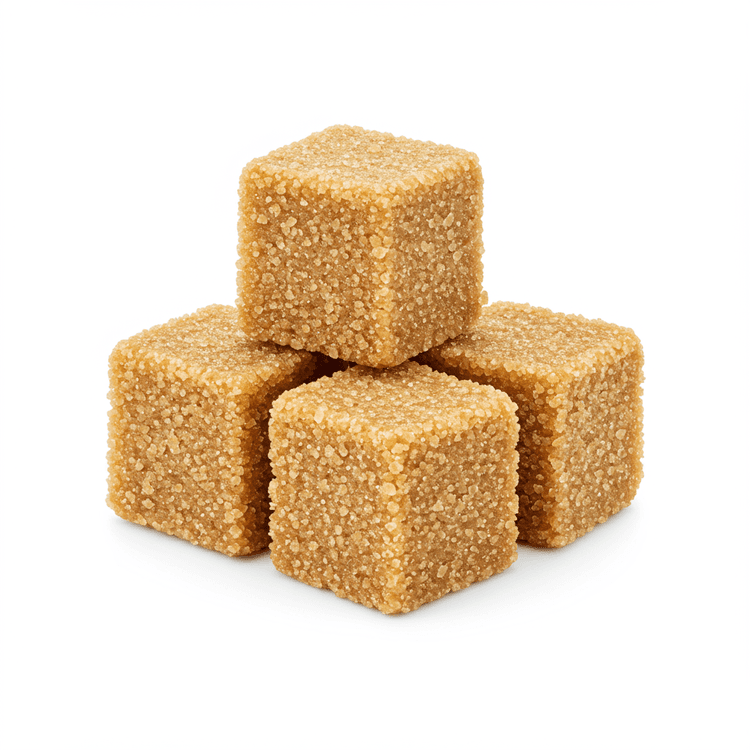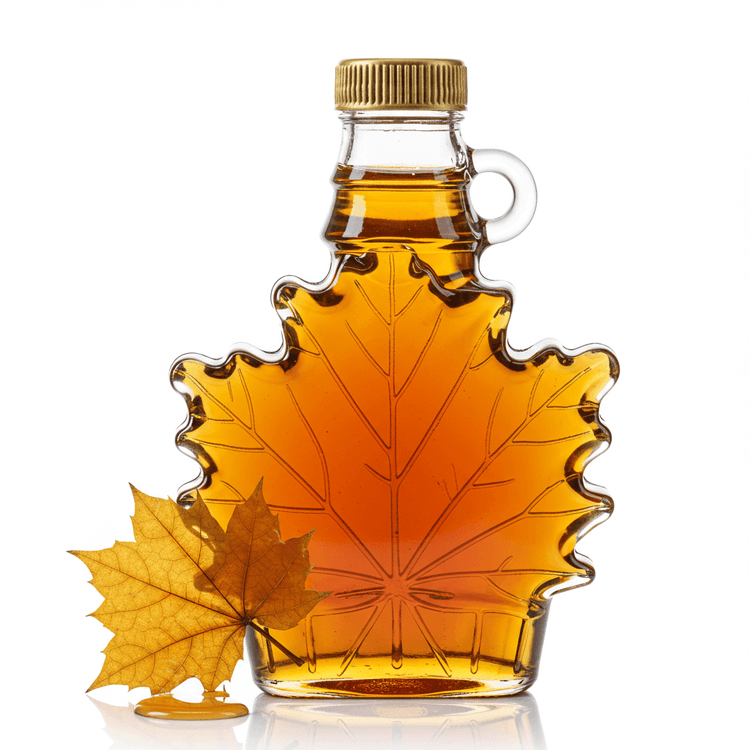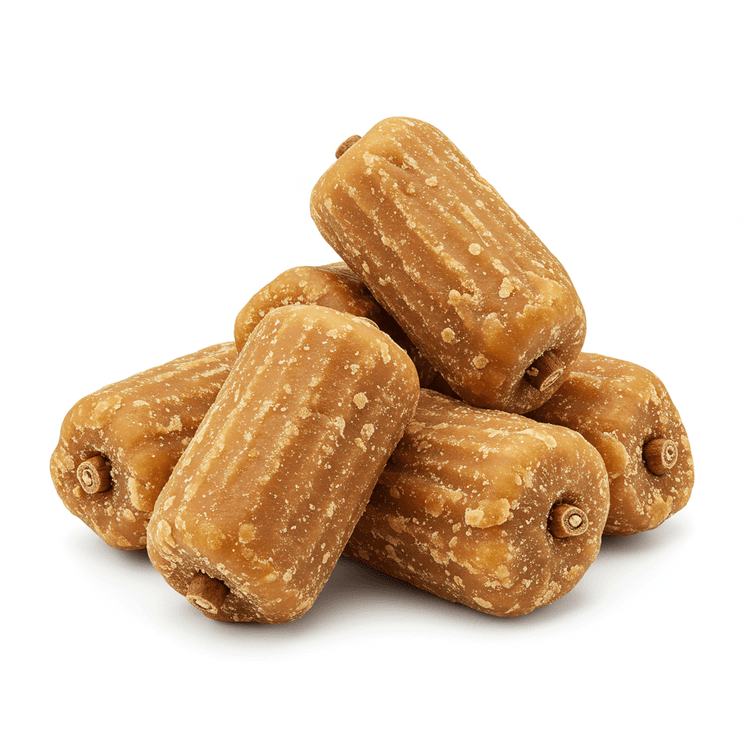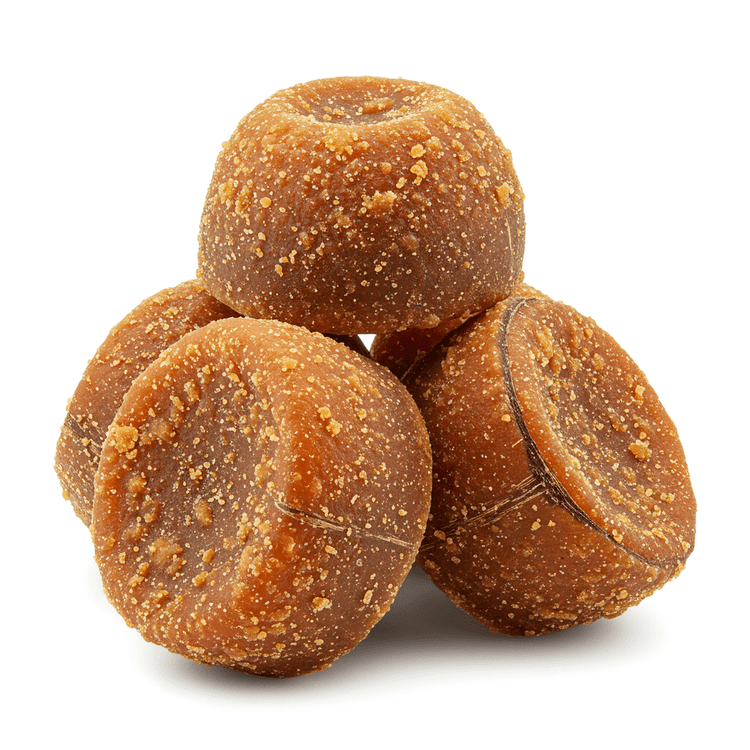
Coconut Sugar
Coconut sugar, also known as coconut palm sugar, is a natural sweetener derived from the sap of coconut palm tree flower blossoms. This granular sugar boasts a subtly sweet, caramel-like flavor with hints of butterscotch, offering a less intense sweetness compared to refined white sugar. Its texture is similar to brown sugar, though it can vary from fine and powdery to slightly coarse depending on the processing. Coconut sugar typically has a light to medium brown color. For those seeking a natural alternative to processed sugars, coconut sugar presents a viable option for baking, cooking, and sweetening beverages.
Common Uses
- Used as a 1:1 substitute for white sugar or brown sugar in baking recipes, adding a subtle caramel flavor to cookies, cakes, and muffins. It adds a depth of flavor that enhances the overall taste profile of baked goods.
- Sprinkled over oatmeal, yogurt, or fruit for a touch of natural sweetness, providing a healthier alternative to refined sugar. The subtle sweetness complements the natural flavors of these foods without overpowering them.
- Dissolved in hot beverages like coffee or tea as a natural sweetener, imparting a delicate caramel note. Its subtle flavor profile enhances warm drinks.
- Incorporated into savory dishes like stir-fries and marinades to add a touch of sweetness and balance the other flavors. Coconut sugar lends a unique complexity that complements the savory elements.
- Used to create homemade caramel sauce or simple syrup. Its unique flavor profile results in a depth of flavor.
- Perfect for making healthier homemade candies and desserts.
Nutrition (per serving)
Nutrition (per serving)
Calories
381.6kcal (19.08%)
Protein
0.6g (1.2%)
Carbs
97.7g (35.53%)
Sugars
96.3g (100%)
Healthy Fat
0.0g
Unhealthy Fat
0.3g
% Daily Value based on a 2000 calorie diet
Nutrition (per serving)
Calories
381.6kcal (19.08%)
Protein
0.6g (1.2%)
Carbs
97.7g (35.53%)
Sugars
96.3g (100%)
Healthy Fat
0.0g
Unhealthy Fat
0.3g
% Daily Value based on a 2000 calorie diet
Health Benefits
- May have a lower glycemic index than refined sugar, potentially leading to more stable blood sugar levels.
- Contains trace minerals like iron, zinc, calcium, and potassium, contributing to overall nutrient intake.
- Unrefined nature may retain some antioxidants, offering protection against cell damage.
- Can provide a source of energy due to its carbohydrate content.
- Less processed than white sugar, possibly retaining more natural compounds.
Substitutes
Chefadora AI is here.
Experience smarter, stress-free cooking.
Storage Tips
To maintain the quality of coconut sugar, store it in an airtight container in a cool, dry place away from direct sunlight and heat. This will prevent clumping and help it retain its flavor and texture. Coconut sugar does not typically require refrigeration but can be refrigerated in humid climates to prevent clumping.
Marnirni-apinthi Building, Lot Fourteen,
North Terrace, Adelaide, South Australia, 5000
Australia
